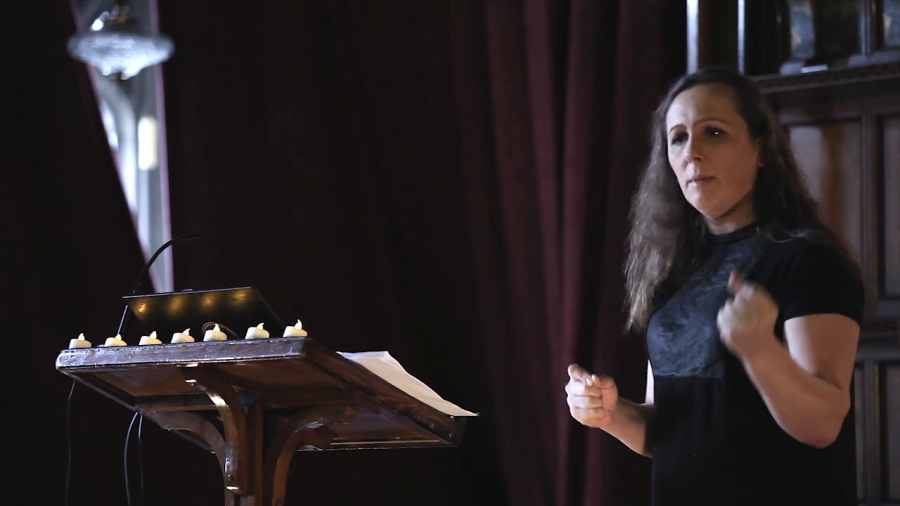I’m here to invoke a few avatars of the world that we exist in today, and we’ll see where this goes.
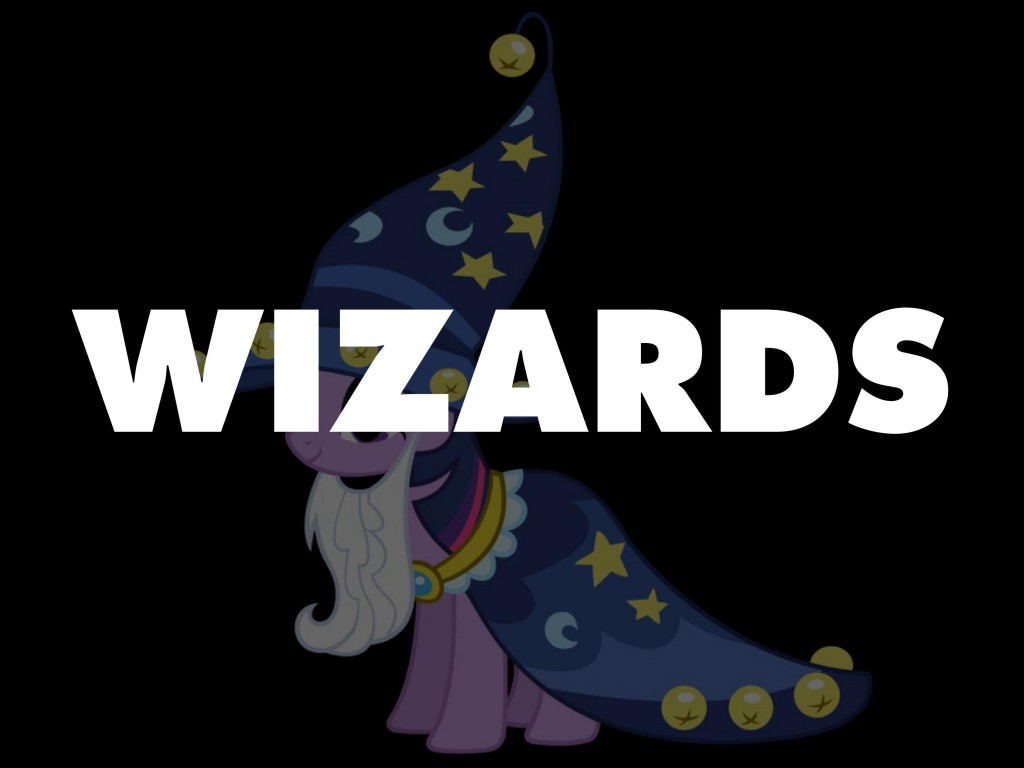
We’ve been talking a little bit about magic, and where there’s magic there are wizards. Isn’t it weird how we see the same group of people chanting out in the forest late at night that we see when we’re drawing pentagrams in the week product meeting? It’s just the same guys in hoods. There’s something really weird going on there, and I don’t really know quite what it is with all the blood and Gantt charts.
So what do we do when we draw forth on the capital of venture and invoke all of this power and create the infrastructural magic that builds society and that performs the binding ties of civilization? We get to use leverage in weird ways in that context, to create all of this ambient power. But the first thing that you know, as any working mage knows, the first thing that happens when you bring up a lot of power is that you have to figure out how you’re going to channel it. Now ideally, if you’re not an idiot, you figure that out before you bring the power up. Unfortunately this is Silicon Valley we’re talking about, so that’s really not on the table.
What a wizard does, fundamentally, the most basic thing that a mage does is they project intent. They take this structure of a vision of the world and a will, and they push it out into reality. And they use that to bind some power; they use that to direct some power in the world. Often if you’re looking at basic sigil-crafting or something, you take some set of invoking words of power, you convey them into some graphic design, you concentrate through that and you structure intent by doing that, and then you use that to channel whatever demonic power you’ve pulled up.
The thing is, projecting intent in that context, when you say okay so look we’ve got this new widget that we’re building and we need to understand what it means, that process by which we project intent is very poorly understood in many circles. And if you don’t know how the magic works, the thing that you end up doing is exactly as Natalie was talking about, this kind of cargo cult where we manage to invoke and create this magic once, we don’t really know how it works. So we better not change anything because we might accidentally break it, we might do just the wrong thing in the wrong moment. So you repeat the same things.
And that projection of intent hopefully at some point lets you bind meaning and bind that thing to have an effect in the world. So by the time you’ve say, subscribed 50% of all cargo flights out of Shenzhen for a six-week period because you need to move your new piece of hardware to market so you’re just going to buy all of the air traffic in a big chunk of the world, hopefully by the time you do that you’ve actually figured out what this thing was going to mean in the world.
The problem is you can only project intent as far as you can see, and especially in collective rituals, this is really weird and complicated. The bigger the circle of mages that you’re trying to work with to create this group working, and if you’re working with 1,000 mages none of whom really speak each other’s languages and that kind of thing, you have to have a much more precisely-understood intent than what you can get away with when it’s just like five of your friends down at the old deconsecrated abbey. You can’t get away with acting like a startup magic circle anymore.
This is why all these little magic mirrors that we reflect the afterlife with, I don’t know if you’ve seen the shelves and shelves and shelves of grimoires that are used to specify the collective intent of the binding circles that invoke the power for these things, but it’s kind of amazing. Documentation is the excrement of collective intent. We excrete in just kind of shocking quantities. In another timeline, as Gene Spafford said of Usenet, it’s like a herd of performing circus elephants, awe-inspiring, thunderous, and a source of mind-boggling amounts of excrement when you least expect it. But it turns out that documenting the intent of a big group of people working together is very much that same thing.
And in the same way that if you’re trying to do something with a lot of people, you need very careful documentation. If you’re trying to do something many times over, or if you’re trying to do something that’s going to affect a large number of people, you end up having that same painstaking documentation.
For instance, the wizard Ives when he was originally building some of his incantations, spent ten years thinking about small curves. Like, okay so we have this thing that we’re going to ship a billion of, we don’t even really have notation in magic for numbers that big, but we’re going to try to do it anyway. So he spends ten years thinking about these fine curves and these find details along with a lot of other stuff, so that obsession, that kind of hyper, almost paranoid obsession with detail ends up being the shape of the intent that’s required to channel this kind of power.
One of the things which is really interesting, one of the reasons why mages spend so much time obsessing over the fine details of intent, is if you summon power and you haven’t figured out all of the bits of intent, and you have loose attachment points sort of floating around in your ritual, then whatever’s nearby is just going to seep into that by default. Some intent will shape that and it won’t necessarily be the one that you planned on it being.
For instance, for all those of you who’ve ever tried to summon a demon into a bank vault, you’ll know that it’s very very difficult to get one of the Communist demons to show up in a bank vault. Because it doesn’t matter how much you push the proper intent of the party into that demonic circle, you’re in a bank vault. This is not going to work very well. As it is below, so it is in Cupertino.
It is very difficult to replace a lot of the context of the intent of this kind of ritual working, and similarly if you are building a scrying mirror and the primary working context is the blasphemous back seat of Jony Ive’s Bentley, you’re going to end up with these weird artifacts like a stocks app that you can’t delete. This is not relevant, it’s just something that came with the context in which you did your summoning. You can’t really get rid of it.
So a lot of the work there goes into maintaining accuracy, maintaining coherence. One of the issues that you run into when you’re working with a circle of mages and you’ve got this kind of, “Well we’re trying to structure our intent for this working,” the composition of the structure becomes very important and relevant and does sort of interesting, weird things. If you have an all-male circle of mages, then whatever they summon is only going to reflect half the world because that’s just how it is, right? So one of the really interesting things that people will sometimes do when they’re trying to create a new artifact is instead of saying, “Okay, I want to make a thing which is new,” they say, “Okay, I’m going to pretend that the world already contained this thing, and I’m going to make a thing which will stand in for this thing.” And part of the way that it gets invoked is just by saying, “I’m going to pretend that this already existed, and then I’m going to act and interact with the world as though this thing already existed and I’m just going to wander around for a while and see how it feels.” And that feeling is part of the process of making something already real.
The problem is in that line “how it feels,” Because what that how it feels doesn’t say is to whom. To whom does it feel that way? If the set of mages that you’re working with reflect the set of people who will ever touch that, then to whom it feels that way doesn’t matter because it feels that way to the whom who touch it. Which is the way Silicon Valley works, which is the way a lot of us work unless we try to do something else, unless we notice that this is an explicit problem in the world. For instance, this is very obvious if you are someone who does not have gigantic hands and you’ve tried to hold an iPhone 6. You will be very aware that there were no female mages on that design team, because they literally made those things and played with them until they felt like they already existed in the world, and then picked the ones that felt right. To them.
And this is endemic. This goes with the not knowing how the magic works. If you understand what you’re doing, and the thing that you’re trying to do with that intent, that is the same as understanding what it means to be the person who’s going to use this. It’s like backwards mirror of neoliberal work on the self. In order to become the person who can shape the artifact in the way that the situation requires, that the use case requires, you need to be capable of living as though you were all of the different users of the artifact, or somehow projecting those people’s lives into the room. Which is difficult, which is not something that most people have training to do, because what it literally requires of you is to kill your own ego. As long as the ego of the design team is the ego of the mage, then you’re not going to be able to build a product that resonates with anyone other than that one person, other than that one set of individuals. If all of the mages involved can do what they’re supposed to do and kill their egos, then they can start seeing the world as it actually is and start down this gnostic path toward some kind of meaningful summoning.
Being able to do that process where you kill the ego is a big part of figuring out what the magic actually is, because that lets you step outside of your position and say, “It’s not about what the farmer is going to do with our scrying mirror, it’s what the farmer is trying to do with their crops and our scrying mirror is simply part of the process by which they come to know the future of their crops. They don’t really care about the mirror. It’s just a tool like their rake.” But you have to be able to step into that farmer’s position before you’re going to be able to see that.
I’m going to jump to the next avatar now.
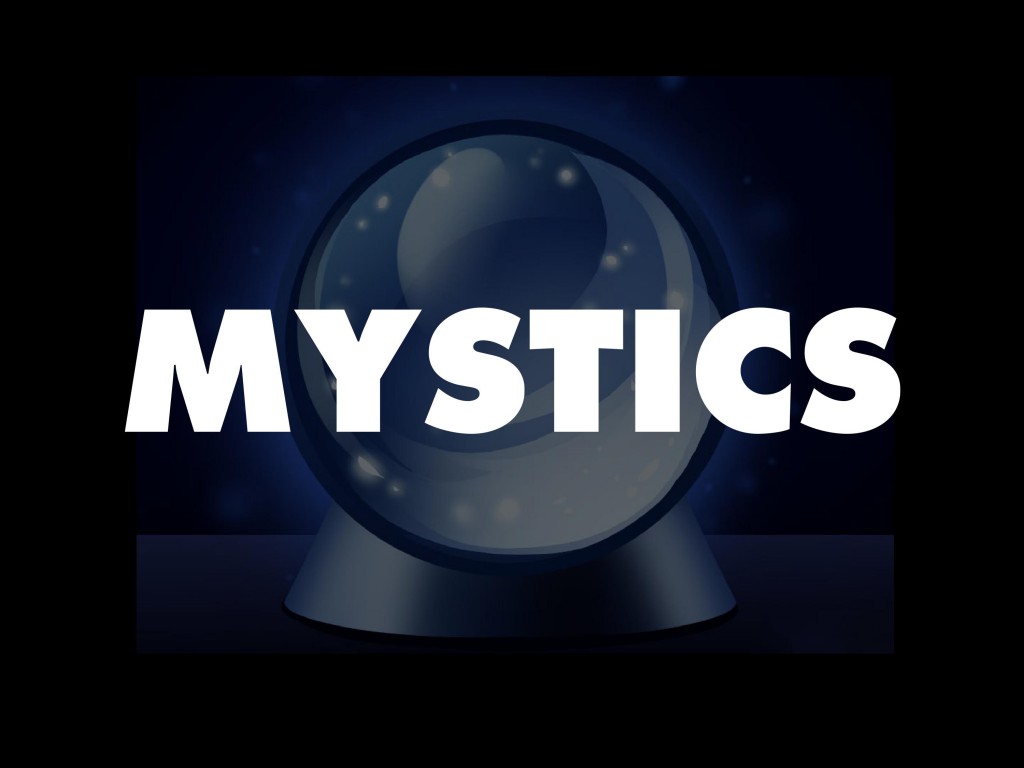
The difference between a mystic and a wizard is really interesting in the context of the systems that we interact with because wizards know what they’re doing, in theory. Often they’re bumbling idiots, too. But the theory is that a wizard knows what they’re doing and that they’re structuring their interactions with reality, that they have agency in the afterworld. But mystics don’t. Mystics are kind of the wanderers. They’re the people who are sort of, “Let’s see. I think if I rub my fingers over the Eye of Horus here, and I put grandmother’s locket on the altar, then we’ll be able to see her.” That’s the mystic mindset. It’s sensing the hidden. So I pick up this featureless black piece of glass and I know that there’s some way to talk to the demon inside it, but it’s a featureless piece of glass, what do I do with it?
So we start exploring it and feeling our way into this, and a lot of the time it’s like the adventure game where you’re, “I don’t know, can I lift this table and flip it off the stage. Is that a thing that the audience supports?” (It isn’t.) It turns out that the pixels are wrong, I can’t do it. It’s just I…click click click.
So we have this structuring of our interactions with these systems, which is actually a subaltern position with respect to the systems that we interact with. Once we do kind of start to get a bit better of a picture, it becomes a ritual invocation but it’s still an invocation from a subaltern position where we don’t really understand quite exactly what happens and why it works. But eventually you gain a certain degree of comfort. And comfort in a system like this means you have space to play, and play it turns out is really really important, because play is how we explore and how we build fluency.
But we can be playing from a position of, I don’t really know what works anymore, but I’ve figured out a few of the verbs. And I’ve figured out a little bit of how I can structure these interactions and now I can sort of explore and know that I’m not going to accidentally run into the demons because I’ve figured out the demons are over there. So I can go play over here and it’ll be fine. And we don’t get to change the rules because you’re not a wizard who just kind of breaks that barrier entirely but you’re kept in this position of still being an outsider in the otherworld; you don’t get to change the rules but you do at a certain point get to play and explore.
Then eventually you become one of the holders of the gnostic wisdom of the ether. and you pass it on in that kind of ritual and incantational frame that we’re all familiar with of, “So if you do this and you do this and you do this, then it does the thing that we need it to do, and we don’t really know why.” But that doesn’t matter because we have the gnostic knowledge and therefore we can print the fucking paper and go have lunch, or whatever we’re trying to do.
So what do we do when that doesn’t work, when grandma doesn’t show up when you rub the locket on the thing? There’s the next step of the negotiation that we fall into, where we realize we had even less agency than we thought we did in the interaction. It’s like look, I’ve already sacrificed everything on the altar, there’s nothing left to kill, what do I have to do to make this thing actually fucking work?
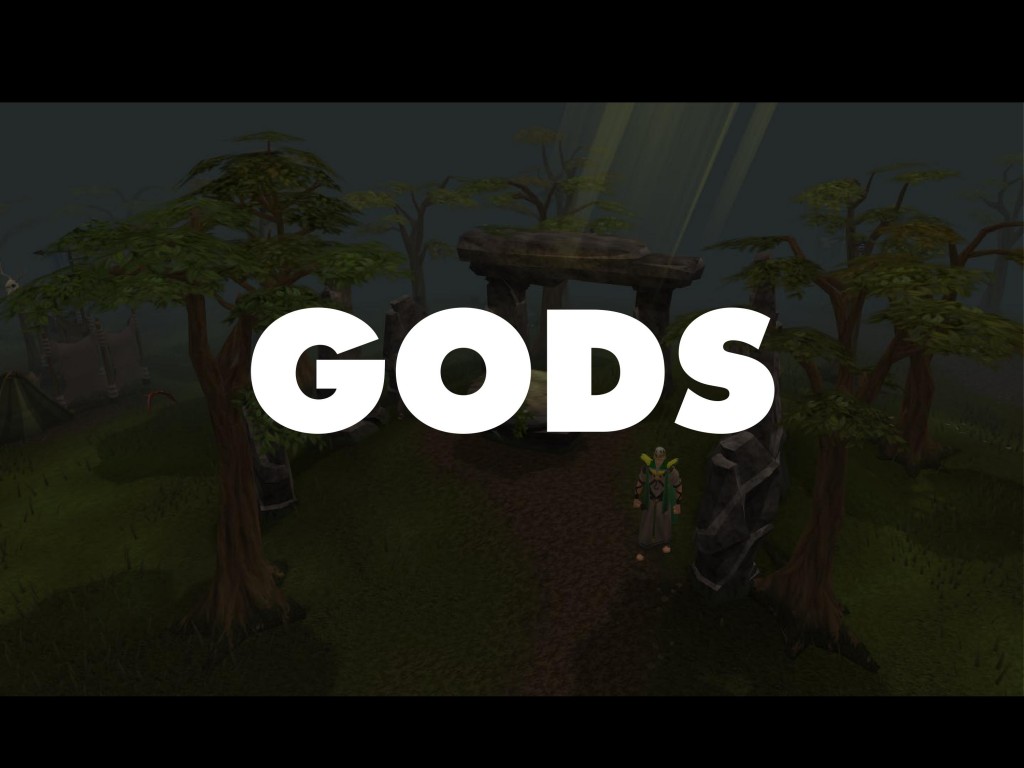
So we create our own gods so we can blaspheme them.
Because one of the really important functions of the power relationship with the deity is that you’ve got somebody to blame. You need a personified structure that you can blame in order to just psychologically be able to continue interacting with this system where you have absolutely no agency.
Then eventually you get to supplication, and sometimes supplication works, not necessarily because it actually did work. It’s random, it’s glitch, it’s whatever, right? But sometimes supplication does sort of work. And you still don’t have any agency but you realize a specific pattern of supplication did work, and then you run into the risk of becoming a monk, becoming the ascetic who has realized that supplication works, and it’s like, “Okay, if I only ever touch these three things in this order…” And it’s not just ritual now, it’s this like, “All other things in the system are impure. I must refrain. I will be holy and good and then the printer will work.”
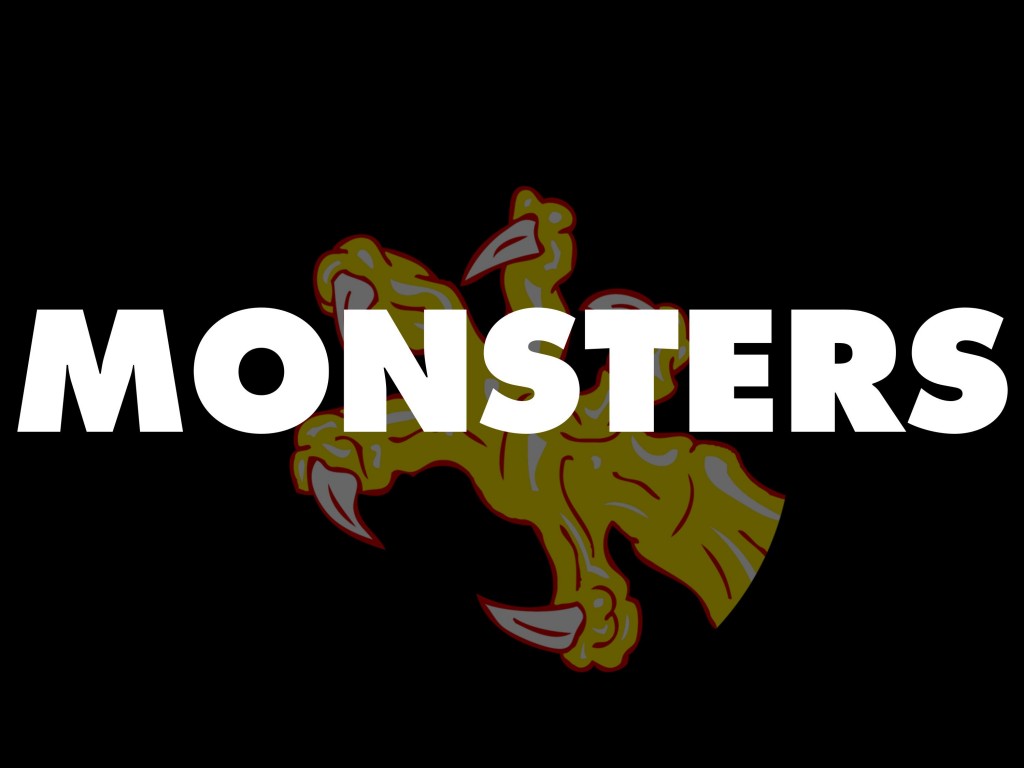
But there’s a flipside to all of this, and this is the interesting flipside because the inverse of the wizards are the monsters. And it turns out that the monsters are the amazing ones because of course the monsters are us. And there’s a reason why we persist in dealing with all of these systems, even when we don’t have access to the venture capital that makes us into wizards who are sort of still men (well, mostly all men) but who can sort of break the boundaries.
We persist because we get to be monsters sometimes, and that’s kind of amazing, and it contains within it this really interesting duality where the network comes out and bites us. But it’s not the bite that’s like the network just shat all over your Cheerios. It’s the bite that turns us into creatures of the network, and all of a sudden we’re just sort of part of it, and we act with the network, and we find ourselves falling into one of these stochastic network collectives. We find ourselves by these powers that previously just looked like things that were sort of conveniences in our world that were restructured, we suddenly realize that we’re nine feet tall and we’ve got giant claws and we’re running amok in the village, and we can kind of do whatever we want.
And it’s this weird time-limited thing because the moon only stays up so long, but the network has given us a certain kind of power which is not the power of the wizards to redefine the rules of reality. We’re nine feet tall, but we’re just nine feet tall. And there are claws, and that means that we can totally go find the asshole banker and gut him, but we have to do it in the world. We don’t get to step outside of the world, exactly.
And then the interesting bit is that at the end of all of that, we turn back into ourselves and the sun rises. And we still live in the village, and then we go and try and repair all the damage we’ve done in the night. Then the moon rises again. And we exist split between the network and the institution, but it’s still sort of a way to take some of that power from the wizard, who’s not using it for our end. He doesn’t care about the banker in the village who really needs to be gutted. All he cares about is, “Hey look, I made a Bentley that can hover. That’s cool.” But we can still sort of steal some of his power in that context.
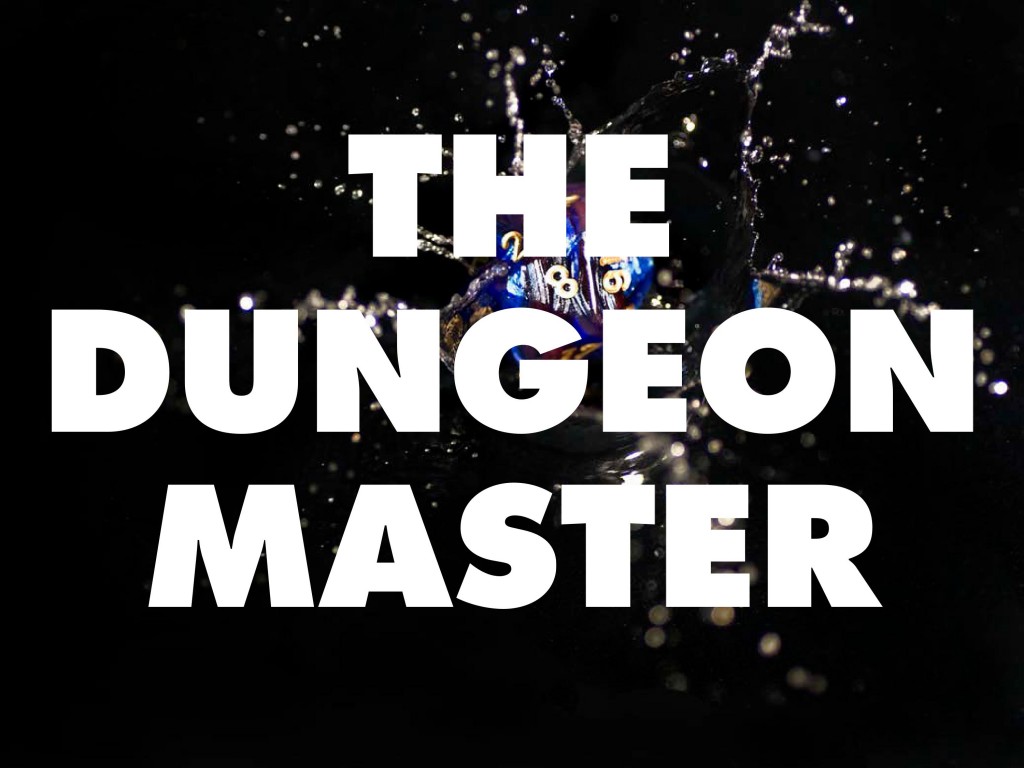
So here’s our last avatar, and it turns out one of the things which I think is really interesting about all of this nonsense is that it lets us talk about a lot of stuff around power and technology and society, and it lets us talk about it openly and honestly. So if I walk into a board room in Silicon Valley and I start talking about the power dynamics inherent in the programmer/user relationship, no one in that room has any interest in that conversation. They would really like me to shut up and go away as quickly as possible; please can we get security in here already, what’s taking so long, oh my god.
But if we go talk about magic, they’re actually interested, and we can have that conversation. And it lets us surface a lot of this stuff around power and intent in ways that are not really easy otherwise. So if we’re talking about how we build big infrastructural systems and we want to talk about the intent of the design team that’s doing the design work there and how the subtle things that that design team didn’t think about will shape the impact of that infrastructure at scale, there’s a lot of really subtle stuff that’s happening in people’s heads, things that people aren’t really aware of. There’s all of these little fine details.
People don’t want to talk about it because they don’t want to think about the fact that oh, this technology that I’m building may mean things that I didn’t intend it to mean. That’s a very uncomfortable conversation for a lot of companies to have, for a lot of engineers to have, for a lot of funders to have. But in many cases they also just can’t see it. They are not primed to think about their impact on the world that way, and a lot of the stuff about magic… (And I think this is part of where this came from other than the bits that were the practical joke that went way too far) A lot of what we’re actually doing here is getting that key to unlock this stuff and to start actually talking about it.
Thank you.
Further Reference
The Haunted Machines site, where Eleanor has a short piece “The Mage’s Intent.”
Dedicated page for Haunted Machines at the main FutureEverything site.
